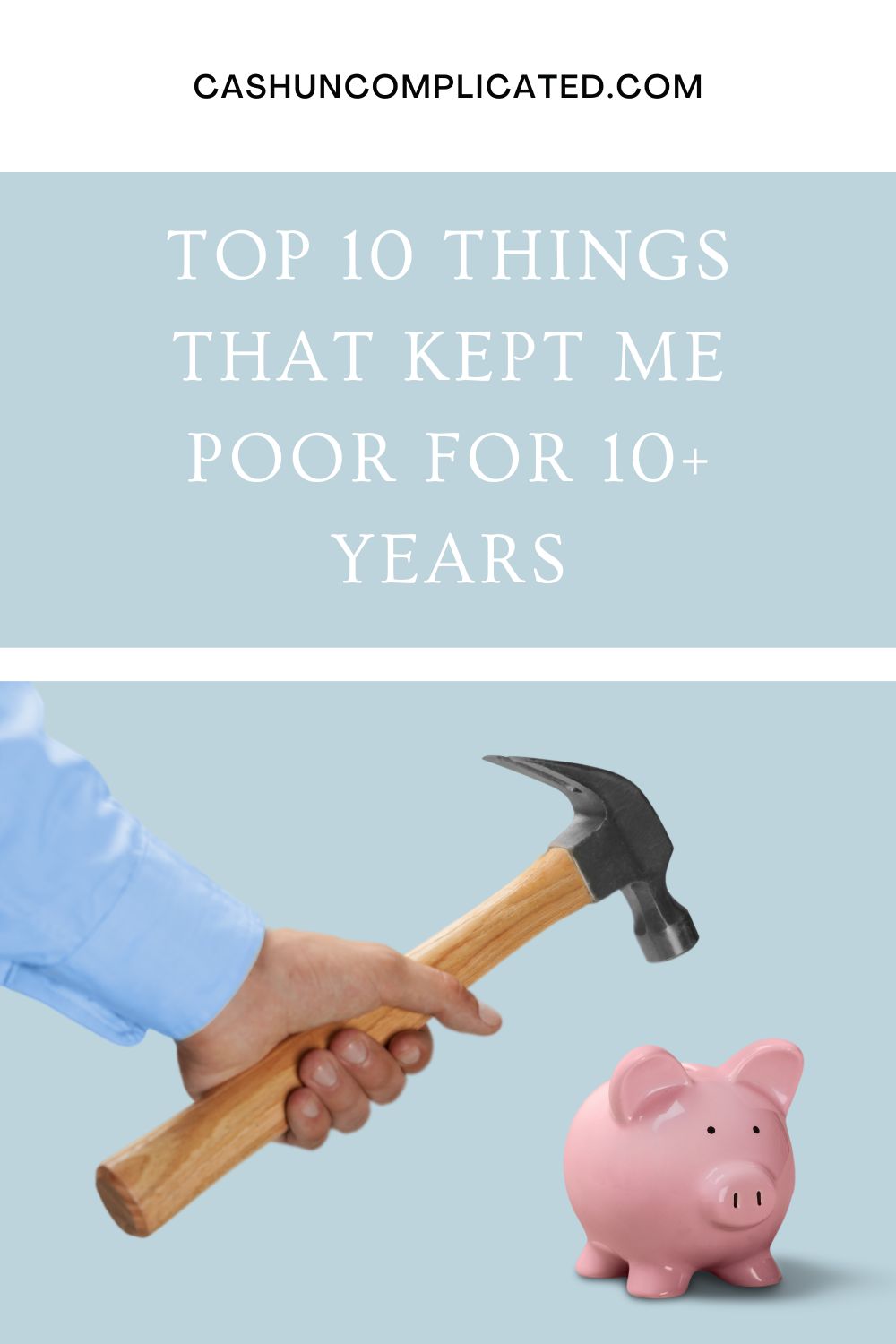This post is about being intentional with money. More specifically, a breakdown of personal finance philosophies that will help you become wealthy not only financially, but also in spirit. Personal finance isn’t always about money–it’s more about the relationship with money and life goals. That’s why it’s important to look at personal finance philosophies from all angles, not just maximizing the financial aspect.
Personal Finance Philosophies Defined
Personal finance philosophies are simply a person’s viewpoints, opinions, and goals related to money. The way people think, act, and eventually behave around money.
Why Are Personal Finance Philosophies So Important?
Personal finance is personal and everyone has their own philosophy around money. This is an important point that should not be overlooked. The personal finance philosophies for one person might be more heavily weighted to making money. While another person will be more heavily weighted towards a work/life balance.
These two people have different philosophies and will therefore need a different life and personal finance plan. If these two people had the same plan, it wouldn’t work because the goals and philosophies are not the same.
Related: Value-Based Spending: How to Create a Budget Around What You Value
Personal Finance Philosophies
The remainder of this post will be dedicated to 13 personal finance philosophies that are important to me and I believe can be important to you. Of course, not every one of them is going to speak to you, but I’m confident that at least a few of them will.
Number 1: What Matters to You: Value-Based Spending
Leading off the list of personal finance philosophies is value-based spending. I start here because you have to know what you value in order to spend on things that matter. If you don’t know what you value, you’re just spending money on things that may or may not matter, and that’s not intentional. There’s no thought to it.
Value-based spending is highly intentional. With value-based spending there are really only two areas where money is spent.
- Necessities like food, shelter, clothing
- High value things like travel, experiences, and select things
If it doesn’t fit under either category, money is not spent.
Number 2: Part of What You Earn is Yours to Keep and Pay Yourself First
Part of what you earn is yours to keep comes from one of my favorite personal finance books The Richest Man in Babylon. This concept or idea helped me do a 180 for my personal finances. My old mindset was to save and invest whatever money I had left over after the month. Which usually was zero, or close to it.
Part of what you earn is yours to keep, flips that mindset upside down. Rather than scrape together what I could at the end of the month, I began to pay myself first. Even before the bills, mortgage, or the daily living costs, I began to pay myself first. And then lived off the rest.
This philosophy makes so much sense but it’s just something I had never thought about before. When you pay yourself first, the money is invested first thing each month and you learn to live on the rest. You might feel it a little bit the first couple months, but after that, you won’t miss the money at all.
Number 3: Automation
Directly related to paying yourself first is automation. Paying yourself first is the goal, while automation is the means to achieving the goal. It’s hard to be disciplined and remember to take certain actions every month like paying yourself first.
Automation solves both of those challenges. With automation, you only need to be disciplined when you first set it up, and when your income increases. There’s no need to tinker with it daily, weekly, or monthly. It’s as close to “set it and forget it” as you can get. Not much to remember either other than to make adjustments as income increases.
Number 4: No Consumer Debt
One of the most important personal finance philosophies is to avoid consumer debt. One of the problems with consumer debt is you’re paying today for the sins of yesterday. Furthermore:
- You likely don’t remember half of the stuff you bought to get you into consumer debt to begin with
- Major opportunity costs
- Start every month immediately behind
- Worse than a zero net worth
Here’s an example. Suppose someone is $7,500 in consumer debt. Among their purchases:
- $1,200 TV
- $2,700 worth of random stuff they barely remember purchasing
- $900 dining out
- $2,700 miscellaneous and interest charges
Every month, at least the minimum has to be paid on this debt. And if there’s any hope of ever paying it off, a lot more than the minimum needs to be paid. So each month starts in the hole and a set amount of money has to be allocated to this debt.
That leaves less money to invest, more stress, and the feeling of starting each month behind in the game. Which doesn’t feel good (I know because I’ve been there).
Related:
Number 5: Use Leverage Wisely
Leverage is a double edged sword. It can amplify wealth, but it can also get people into trouble if cash flow is too tight and reserves are insufficient. Before more is written about leverage, it’s important to define what it is. Leverage is using a percentage of what an asset is worth to purchase it. A couple examples:
- 25% down on a rental property worth $500,000
- Small business loan that finances 70% of a business valued at $100,000
In both examples, the money the investor puts into the purchase is less than what the asset is worth. Diving deeper into the rental property, the asset is worth $500,000. However, only 25% is put down for a total of $125,000. If the property appreciates by 10% the next year, the investor captures the appreciation on the full value of the property ($500,000), not just the money she put down.
So she is able to secure the gains from the appreciation without having to pay the full value of the asset. This doesn’t come without risks though, especially if rents drop and it becomes hard to make the payments. Using even numbers, someone with 10 leveraged rental properties that each have a drop of $100 per month in rents is a $1,000 loss.
Conversely, if each property has a $100 gain, that’s a $1,000 gain. So it goes both ways. Moral of the story is to use leverage wisely, fully understand the risks and rewards, and have sufficient cash flow and reserves.
Number 6: What Helps You Sleep Better at Night?
Number six on the list of personal finance philosophies has everything to do with your money mindset, life goals, and risk tolerance. Optimization aside, what are your money goals?
Do you want money to help provide you with a sense of security? Know that you can provide the basics for you and your family? Or do you want to optimize and generate great wealth to pass on to future generations and important causes?
Money isn’t helpful if you’re always worried about it, and stay up at night thinking about it. I would argue that a multi-millionaire who stays up at night worrying about losing money is in a worse position than someone with a much lower net worth who feels good about their financial position and sleeps well at night.
It’s important to remember that financial optimization isn’t always the best move for everyone. A rental property investor would be optimized to keep their properties leveraged and continue to invest to build greater wealth. However, if an investor would sleep better at night having some, or all, of their properties paid off then that’s the right thing for them. Even though it means less total net worth.
Related: Why I Paid Off My Low Interest Student Loan Debt
Number 7: Determine What is Enough
Piggybacking off the last section about what helps you sleep better at night, comes a very important follow up question. What is enough? How much money is enough for you and your family to enjoy and live the life you want? What do you really value and how much money do you need to obtain those values?
Are you in it for the purpose, the fun of doing the work, the challenged, or is it about financial security? These questions will help you answer what is enough–not only enough money but enough challenge and purpose as well.
Back to the financial security aspect of enough and using an exaggerated example–someone may have the ability to make 10 million more dollars if they just keep working and grinding for another few years. But if that person already has enough, what is the purpose of another 10 million? If it doesn’t enhance their life at all, why do it?
That’s why it’s so important to determine what is enough. Whether we’re talking in the thousands, millions, or billions–there is an “enough” point for everyone. Figure out what yours is and live your life accordingly.
Number 8: Do It For Yourself and Your Family
Sometimes we get caught up in life and forget why we are doing what we do. Things get busy–projects at work, long hours, extracurricular activities, kids and family, etc. Day to day, things seem normal and on the right track.
But through the day to day, it’s easy to lose sight of what is important. Take a step back, look at everything you are doing, and make sure what you are doing is for you and your family. Some questions to ask yourself:
- Are those extra hours at work helping your personal and family goals?
- Is the new car that you financed helping you spend more time with your kids?
- Is your current path one of progress or one of staying stuck?
Try to minimize or eliminate the things you’re doing that not for you and your and family. If you bought a new car thinking it’s going to impress your co-workers, that probably wasn’t the right reason to buy it. Or if you currently live in a nice neighborhood and are looking to upgrade at twice the cost, think twice about your reasons.
Number 9: Don’t Try to Impress Others–Nobody is Watching
In my book Cash Uncomplicated, I write about buying things to impress others. It feels good at the time and like others are watching our success. But there’s a reality–and that reality is that nobody is really watching that closely.
Sure, people may take notice in the short term, but very few people are going home and thinking about your success, whether it be financial or something else. Even if they were going home and thinking about your success, you wouldn’t know their thoughts anyway. This goes back to number eight on the list of personal finance philosophies–do it for yourself and your family.
It’s nice to get recognized for success, but in the end it’s all about you and your family. Make sure you’re doing it for the right reasons and not trying to impress others.
Number 10: Avoid Lifestyle Creep
Most of us can remember in our early twenties living very frugally. Whether this was as a college student or new to the workforce, you probably didn’t need a lot. Then as we enter our mid-twenties to early thirties, we begin to make more. Problem is, this is also a time many people also spend a lot more.
Make $100 more per month, spend $100 more. Get a new job making $15,000 more per year and spend $15,000 more per year. Make a commission of $4,300 and spend it within two months. This is called lifestyle creep, basically defined as increasing spending as income goes up. It becomes almost parallel growth which means you’re not getting ahead, even though you are making more.
Recognizing-and taking action against lifestyle creep is one of the most important personal finance philosophies towards building long-term wealth because it improves your ability to save and invest. And investing pay increases is one of the most powerful things anyone can do to improve their long term-financial situation.
Instead of spending all of the $100 per year raise, what if you invested between 80 to 100 percent of it? After five years of these pay increases, an individual getting $100 per month pay increases would be investing $400 to $500 more per month. That’s not a lot of money for the year, but it really adds up over the course of several years, especially in dual-income households.
Related:
- What is Lifestyle Creep? A Quick Overview
- One Simple and Easy Way to Avoid Lifestyle Creep That Anyone Can Do
Number 11: Consistency and Compounding
There’s the late-night TV money guru who promises get rich quick in four months–three months if you really hustle. From there it’s retirement on the beach sipping tropical drinks all day. Then there’s the reality of how most millionaires make it–steady, consistent, and making smart investment choices.
The more consistently money is invested, the more opportunity there is for compounding. Albert Einstein referred to compound interest as the eighth wonder of the world, which isn’t far off. Compounding starts off slow, but once it gets going, it becomes an almost unstoppable force.
It has to get started though, and that’s where consistency really comes into play. It may sound boring, but dollar-cost averaging over several years produces amazing results. And the more money contributed to investments, the faster the compounding occurs. A few illustrations on the power of compounding:
- $500 per month for 30 years at a 10 percent rate of return is $1,085,661
- $1,000 per month for 20 years at a 10 percent rate of return is $756,030
- $100,000 lump sum with no further contributions for 30 years at a 10 percent rate of return is $1,744,940
Number 12: Track Your Money
Number 12 on the list of personal finance philosophies is to track your money. Not the most glamorous thing in the world to do, but tracking makes a really big difference in our personal finances. Why? Because most people have no idea where their money is going.
I personally was guilty of this. I had no clue where my money was going on a monthly basis and wondered why I didn’t have money left over at the end of the month. It’s because I spent up to what I earned and therefore lived paycheck to paycheck. If I had earned $2,000 per month I would have spent $2,000. If I had earned $3,000 per month I would have spent that amount.
Tracking your money takes care of this issue relatively quickly. A few months tracking your money and most people will have a really good idea of where it is going. For example:
- Unused magazine subscriptions
- Fast food
- Multiple stops at the convenience store
- And many more
These are just some of the places our money ends up. Once we start tracking though, those unwanted habits can be eliminated because there is an awareness, and it’s easier to become more intentional with our money.
Number 13: Keep an Emergency Fund
Last but not least on the list of personal finance philosophies is to keep an emergency fund. Quite simply, the unexpected is going to come up. We don’t know when, where, or how–but it’s going to happen. That’s why it’s called the unexpected.
We can put all the prevention controls in place to minimize the unexpected, but it’s impossible to eliminate 100 percent of all risk or the unexpected. That’s where the emergency fund comes in. The emergency fund is a pile of money sitting there at the ready for the unexpected. That way when the unexpected does occur, it’s not a financial crisis, but rather an inconvenience.
Which is a huge stress reducer and allows people to keep living their lives rather than becoming hyper-focused on what could have become an emergency. An emergency fund also allows us to sleep better at night knowing money is there just in case and we aren’t one situation away from financial insolvency.
Related:
- How Much of an Emergency Fund Should You Really Have?
- Why the Pandemic Prompted Me to Increase My Emergency Fund
Conclusion
It’s important to have personal finance philosophies. They are a roadmap of what we want our personal finances to look like, along with a way to get there.
In many instances, personal finance philosophies come before the actual success. For example, if one of your philosophies is to invest 20 percent of your income every month, that is going to come long before you have millions of dollars in investments. However, if that 20 percent or more is invested consistently over a long period of time, success becomes almost inevitable.
Whatever your personal finance philosophies might be–remain consistent, keep a growth mindset, and follow your plan.
What are your personal finance philosophies?












